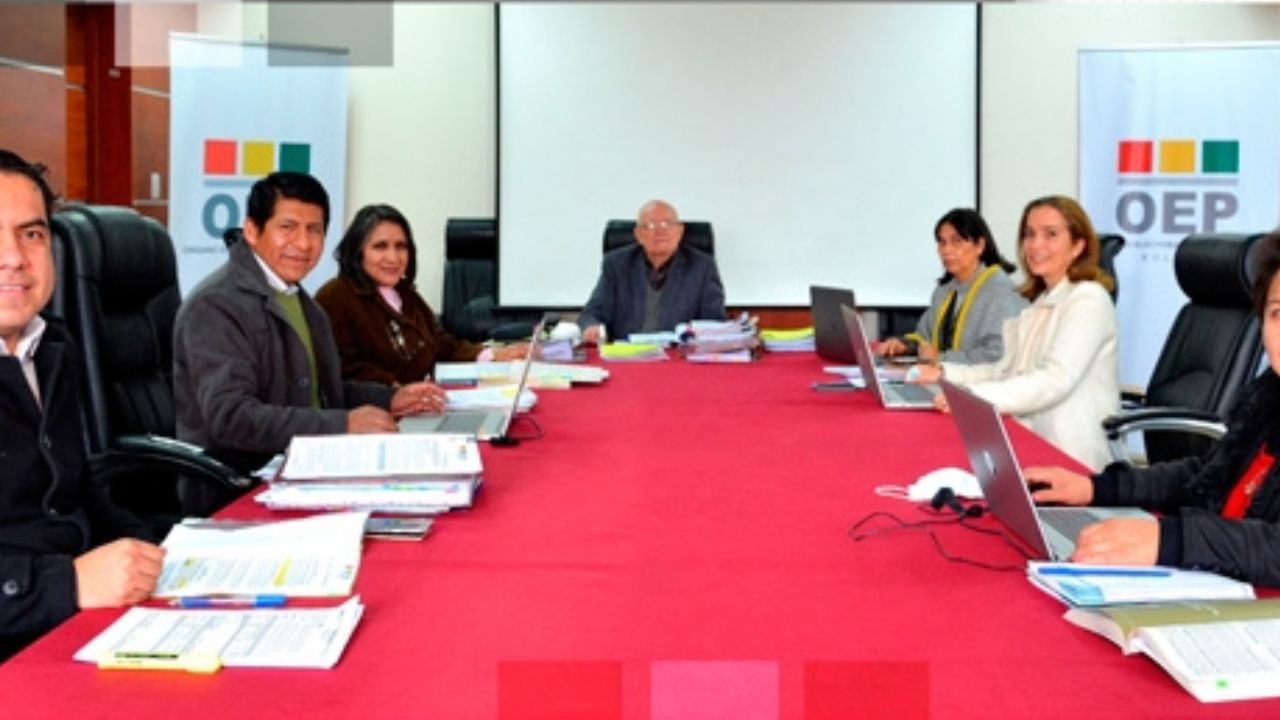Digital Page Seven
The member of the Supreme Electoral Tribunal (TSE) Rosario Baptista, warned that there is political party influence in that body of the State and that a part of her colleagues (the court is made up of seven members) prevents her from advancing in her work with independence and impartiality. He denounced that he is a victim of “political persecution.”
“I categorically affirm that, in the Electoral Body, because it is a collegiate body, decisions are made in the Plenary Chamber, and a part of the members prevents the fulfillment of the obligations that the law determines and our duties towards citizens, to which we owe ourselves. In my case, the price for trying to act based on the Constitution and the law has been political persecution, internally, through disciplinary processes and workplace harassment, extended to the personnel in my environment; and externally, through criminal complaints and threats that put at risk my mandate as a Member of the Supreme Electoral Tribunal, my civil rights, my integrity and security, “says a letter to which he agreed. Digital Page Seven.
In it, the member reflects on the importance of the impartial and independent work of the Electoral Body to guarantee democracy and assures that during the almost two years that she has been in the position, she has worked so that the defects and shortcomings in the Plenary Chamber are corrected. the electoral system and, among other things, “the institutional channels to achieve the real and definitive clarification of what happened in the 2019 election are exhausted”.
“These institutional duties have not been possible to be fulfilled, due to the partisan political influence that is exerted on the majority of the elected members,” he adds.
Baptista was elected and inaugurated on December 19, 2019, along with six other members: Óscar Hassenteufel Salazar, Dina Chuquimia Alvarado, Daniel Atahuichi Quispe, Nancy Gutiérrez Salas, Maria Angélica Ruiz Vaca Diez and Francisco Vargas Camacho.
On September 22, Baptista expressed his dissent in the ratification of the organic statute of the Movement Toward Socialism (MAS), considering that it violates determinations established in the Political Constitution of the State (CPE).
In its substantiation, it questioned articles 66 and 67 referring to the designated authorities, stating that it determines “who are the authorities and public servants, in the period in which the MAS-IPSP is a government, which is an inadmissible generalization.”
You can also read: MAS statute prohibits neutrals and independents from holding public office
He also mentioned that citizens’ rights are violated, because to exercise any public office, apart from the suitability defined by the Constitution, the MAS includes political militancy.
In her letter, the vowel urges the Bolivian people “to understand and assimilate that the only possible means to protect and guarantee our democracy is to get involved in the redesign of the electoral system in coordination with civil society organizations, with new norms that guarantee the exercise full of political rights; with a distribution of seats that guarantees proportional representation for the population; with technology that prevents any possibility of manipulation; with a transparent electoral roll and always open to citizen scrutiny; with an electoral cartography based on technical criteria and not on political interests; with guarantees of suffrage according to the constitutional mandate; with the fulfillment of parity and alternation for women, with respect and freedom of decision; without instrumentalization and invisibility of indigenous peoples; and above all, free from any partisan influence in all instances of the electoral arbitrator, including not only the elected authorities, but also the designated officials, and with the extensive and live transmission of the deliberations of the Plenary Chamber, all this to ensure that our civic legacy to those who will come is based on the integrity of justice, principles and values based on the freedom to deliberate and choose who makes up the public powers and the way of governing ”.















